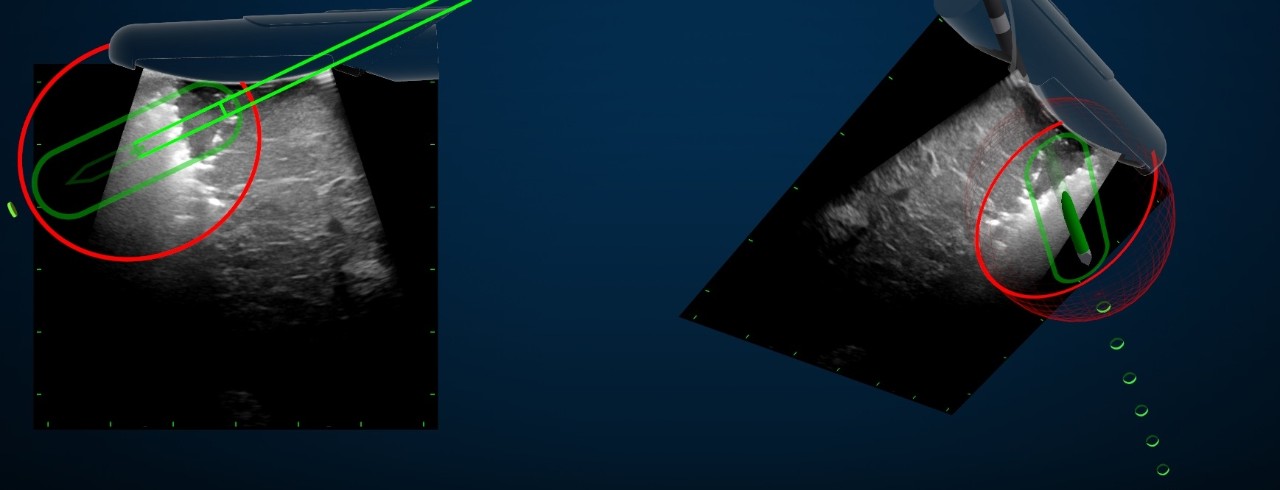
UC study: Real-time navigation a useful tool for liver cancer procedures
Retrospective research published in JAMA Network Open
A University of Cincinnati Cancer Center study found real-time navigation is a useful tool for surgeons performing ablation procedures to destroy tumors in the liver.
The research, led by David A. Gerber, MD, was published in the journal JAMA Network Open Feb. 29.
Ablation, Gerber said, uses focused energy to kill tumor cells in a similar way that focused energy in a microwave heats up food.
“It is used for small- to medium-sized tumors because the energy can be targeted at the tumor without injuring the rest of the organ,” said Gerber, the Christian R. Holmes professor of surgery and chair in the Department of Surgery in UC’s College of Medicine.

David A. Gerber, MD. Photo/University of North Carolina at Chapel Hill School of Medicine.
Liver cancer is the fourth-leading cause of cancer-associated death in the world, and ablation is a promising, less invasive alternative to removing these tumors surgically for select patients.
However, there is a technical learning curve for surgeons to precisely locate the tumor and place the ablation device in the correct spot to completely destroy the tumor while minimizing damage to surrounding healthy tissue.
Traditionally, Gerber said surgeons have had a two-dimensional ultrasound as a guide, but the procedure is performed in three dimensions.
“It is similar to playing a three-dimensional game when you are only used to playing on a game board,” he said. “Most people struggle to simultaneously visualize all three dimensions when they are looking at a video monitor, a current challenge with laparoscopic or minimally invasive surgery.”
New technology provides navigation in three dimensions as a supplement to static ultrasound imaging. Using an electromagnetic field generator and spatial sensors, a real-time augmented reality image gives the surgeon more detailed information on where the tumor is located.
In the retrospective study, Gerber and his colleagues compared outcomes of more than 750 ablation procedures performed by a single experienced surgeon with and without navigation between June 2011 and January 2021.
This technology allowed me as an experienced provider to rapidly teach a less experienced provider, and the navigation accelerates their time to proficiency.
David A. Gerber, MD
There were no statistically significant differences in survival rates or rates of incomplete ablations, or cases where the tumor was not completely destroyed, between the procedures completed with and without navigation. In the navigation group, there were significantly more patients with advanced disease and tumors in more challenging anatomic locations.
Gerber said the findings show real-time navigation is a helpful aid for surgeons performing ablations for liver cancer tumors, although the benefits may not be as pronounced for high-volume experienced surgeons.
“Incorporating ablation into clinical practice is still very new, and most surgeons will have little to no experience with intraoperative targeting,” he said. “This clinical experience is one of the largest in North America, so it is likely that navigation will have a greater impact for the less experienced surgeon.”
Technological innovations are key to helping a majority of surgeons adopt new treatments and procedures like ablation, Gerber said.
“This technology allowed me as an experienced provider to rapidly teach a less experienced provider, and the navigation accelerates their time to proficiency.”
Impact Lives Here
The University of Cincinnati is leading public urban universities into a new era of innovation and impact. Our faculty, staff and students are saving lives, changing outcomes and bending the future in our city's direction. Next Lives Here.
Featured photo at top: The Medtronic navigation display provides more detailed information to help guide a surgeon during a liver cancer ablation procedure performed at the University of North Carolina at Chapel Hill. Photo/David A. Gerber.
Related Stories
UC cancer research presented at national meeting
May 26, 2023
University of Cincinnati Cancer Center researchers will present abstracts at the American Society of Clinical Oncology (ASCO) annual meeting 2023, held in Chicago June 2-6.
New trial tests chemotherapy regimen following pancreatic cancer surgery
May 19, 2023
The University of Cincinnati Cancer Center's Syed Ahmad, MD, is the national principal investigator for a phase 2 trial testing the effectiveness of chemotherapy treatment following surgery for a subset of pancreatic cancer patients.
UC study: Immunotherapy drug did not increase surgery complications
September 7, 2022
University of Cincinnati researchers recently published study results in JAMA Otolaryngology showing that administering immunotherapy drug pembrolizumab before surgery for oral cavity cancer did not increase rates of complication during and after surgery.
